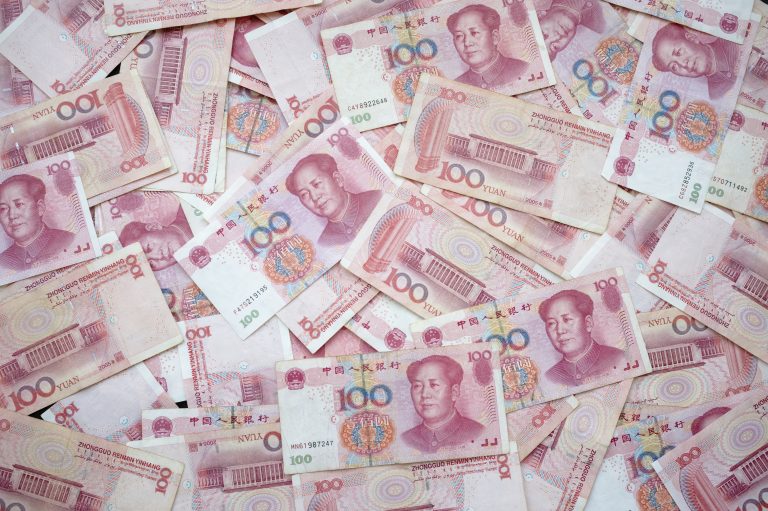During the month of October, we have been celebrating the CP blog turning 1 year old by looking back over our favorite posts from the year. So far, we’ve highlighted stories and various topics that exemplify the heart of our blog. Last, but definitely not least, we focus this week on the Chinese voices the CP blog has published. From commentary on traditional holidays to living out the gospel in parenting, China’s Christians are seeking to apply the gospel in all areas of life. Take a moment to read some of these posts and learn from the experiences of our brothers and sisters in Christ!
In Christ,
The China Partnership

1) A Light Shining, Part 2: Christmas in a “Flat” China
“Now there are approximately 100 million Christians in China. While non-Christians enjoy the Christmas sales, Christmas music, and Christmas food, Christians in China celebrate the birth of Jesus Christ, the true Savior, who suffered for the world and for the Chinese people. And it is for this Savior that the Chinese Christians have been suffering until now. Every year, every day, and every moment, more and more people are giving up their idols and becoming Christians! For Christians in China, Christmas is a sign of new belief and a victory of faith.”
2) The State of Chinese Urban Churches
“Prosperity and power are the top two cultural idols in China. And through thousands of years of tradition, the size and magnificence of buildings is the most important way to show power and prosperity. After peasants made more money in the early 1980s, their first reaction was to build bigger and bigger houses in the villages. When the central, provisional, and even township level governments collected large amounts from taxation, they built amazingly large government buildings. For the same reason, building big church buildings has been the way people show their faithfulness and sacrifice to the Lord and to show God is true and real in the society. It is a cultural expression of piety.
But do we have a true understanding of the gospel? In other words, do we understand the weak, suffering, and crucified Jesus Christ? Are we controlled by that life?
We have long way to go.”
3) Spring Festival Belongs to Us: A House Pastor’s Reflections
“Brothers and sisters, the Spring Festival belongs to them, but it also belongs to us. In the final analysis, it belongs to us. In a Jesus-resistant people group, the highest ideal can only be a type of fragmentation. If we do not eradicate the root problem, the country cannot be saved. If the Spring Festival does not undergo a rebirth, it will become a great tragedy in the Chinese culture. For those brothers and sisters who are returning home, I hope that you can carry the gospel and its ideal to your families. I pray that the married couples in [this city] will open up your doors, and celebrate the Spring Festival with those who cannot go home. I also hope that you can step outside the door and bring your family to church to worship God.
Only we have the Spirit-filled wisdom in Christ; only we are consecrated to be his holy priests in this Spring Festival. It is not the Spring Festival, but us, who are selected by God for himself to be ‘humanity’s intangible cultural heritage.'”
4) Living Out Theology to the Utmost, Part 1: A Chinese House Church Pastor Visits American Churches
“There is a big difference between going on an in-depth tour and going sightseeing; this time, I had an opportunity to learn about the theological thinking that went into [various] phenomena. In these past few years, China’s house churches have had the chance to leave the country and come in contact with all sorts of overseas churches; I myself attended an overseas worship service for the first time about seven years ago.
I have to admit, however, that it was not until this trip that I was able to somewhat escape the attitude that I was sightseeing, and not just go on what I would call a Wow Trip: when a Christian goes overseas and looks at a church building, they will exclaim, ‘Wow!’ During the worship service, they will exclaim another ‘wow.’ When they hear the music or when they see the Sunday school classrooms, there is another ‘wow.’ And when getting the various publications, they will again say ‘wow!’ as they put them away, hoping that someday their own church can print such beautiful worship programs, church introductions, and welcome cards.
But once the excitement passes, how much of that [experience] can be brought back to China so that the church’s pastoral [ministry] is more Biblical and faithful to what God has given to us? Very little, because once we come back, we realize that we do not have such a big congregation, or as much financial offerings, or such a large piece of land, or specialized staff, or such a permissive environment. We don’t have anything except an admiration, jealousy, and [even] hatred of overseas churches.
What I took away from many of my trips to overseas churches was the feeling, ‘We can’t do any of this; what a waste of a trip!’ So in this recent trip, I kept asking myself two questions: ‘What theological orientation and what sort of contextualization formed the basis of these actions?’ I also sought verification of my observations from the elders, pastors, staff, and members, listening to their stories and the thought that went behind these decisions.

5) The Gospel and the Souls of the Chinese People, Part 1
“But in the midst of this fiery suffering and trial, God preserved his children and protected his church. He also used this opportunity to purify his church, cleansing the faith of his children. This is the testimony of many Christians who went through this period of tribulation. In the midst of trial, they recognized their own weakness and corruption, seeing the shortcomings in their faith.
But they also saw the merciful and chastising hand of God. God purifies, but he also grants revival. Even in the most difficult times, one could often witness the power of the gospel. Some people turned to the Lord through the testimonies of many ordinary Christians and evangelists. House churches began to spring up. According to a poll from 1982, the number of Christians at that time had reached about three million, three times of the number in 1949. How astonishing!”

6) Raising Children in the Gospel: Four General Rules
“There was a time when I parented my kids for my own honor. To exalt my righteousness, there were wrong ways and contents coming up, because my heart was already unclean. While meeting together at church, for example, there were conflicts among the children in which parents ought to intervene. Part of me was not only for discipline, but for showing how good I am at parenting. Later, I regretted this deeply, since it was indeed harmful to my girl, treating her as the sacrifice to honor myself without any love for her or God, but only with love for myself.
All of these are keeping me aware of how broken I am at parenting and any other aspects, so that I humble myself and live a life of depending on God’s grace. Otherwise I wouldn’t think it was God; I would think I have the ability. It is good to have these experiences so that my sinful nature will be revealed, so that I will come back to the cross for strength, and raise children “in Christ” with hope.”

“For more than a year, with the worsening of the demolition of crosses, I have been thinking and asking: what is the nature of this event of the demolition of crosses? Why is it restricted to the province of Zhejiang and not happening in any other provinces? This recent course of events has reflected what types of characteristics? How are we to think about this series of events? How are we to respond?”
“For Christians, ‘lustfulness’ is not considered primarily as a relationship between two people. If you believe that mankind is created, rather than being a product of accidental evolution, then the meaning of ethics is primarily that of the relationship between the Creator and the created. In the Bible, ‘lustfulness’ primarily points to man’s betrayal of and infidelity toward his Creator. Therefore for a Christian, the basis of ethics is the relationship between God and his creatures.
Regarding this definition, you do not have to be a Christian. As long as you are not a total materialist (meaning you believe that there is a certain power and value in this world that transcends man’s physical life, even though you are not sure what that power is), I think you would accept my first proposition: man’s biggest ethical failure, or primary ethical failure, is betrayal and denial of values and beings that transcend themselves. This is the beginning of all ethical failures in human relationships. I hope that even as we come from different religious points of view, this is a consensus on which we can dialogue.”































